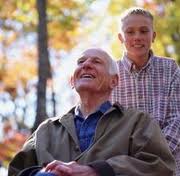Adlerian Therapy Technique
Tweet Adlerian Psychotherapy is both humanistic and goal-oriented.
Adlerian Psychotherapy is both humanistic and goal-oriented.
Adlerian Therapy is a growth model. It stresses a positive view of human nature and that we are in control of our own fate and not a victim of it. It places an emphasis on the individual's strivings for success, connectedness with others, and contributions to society as being hallmarks of mental health.
We start at an early age in creating our own unique style of life and that style stays relatively constant through the remained of our life. That we are motivated by our setting of goals, how we deal with the tasks we face in life, and our social interest.
Adlerian psychotherapy or counselling is derived from the so-called individual psychology of Alfred Adler (1870-1937), one of the early disciples of Freud. In contrast to the latter, Adler attributed less importance to infantile development in the psychogenesis of neuroses and more to the child's experiences with power and powerlessness.
The therapist will focus on and examine the clients' lifestyle and the therapist will try to form a mutual respect and trust for each other. They will then mutually set goals and the therapist will provided encouragement and make suggestions on how the client can reach these goals.
The therapist also provides encouragement for making changes that will assist the person in attaining his or her goals.
Adlerian Therapy Focus
- Importance of the feelings of self (ego) that arise form interactions & conflicts
- Sense of self (ego) central core of personality
- Ego = core individuality of person
- Start from Psychoanalysis
- Emphasis on motivation & social interaction
How Adlerian Therapy works?
The goal of Adlerian Therapy is to challenge and encourage the clients' premises and goals, to encourage goals that are useful socially and to help them feel equal. These goals may be from any component of life including, parenting skills, marital skills, ending substance abuse, and most anything else.
Th Adlerian therapist provides a supportive, accepting environment that can help you build trust, hope and confidence. This can be achieved in a non-judgemental, non-labeling context where the client is stimulated (or irritated) into thoughts and actions which strive for a postive, balanced, connected, competent and creative approach to self and others. The therapist may also assign homework, setup contracts between them and the client, and make suggestions on how the client can reach their goals.


Sometimes crying or laughing
are the only options left,
and laughing feels better right now.

Current Issue
 Self Help Leaflets Take the help of our self help leaflets or booklets. |
 The DG Magazine All about living with depression |
Most Read on Treatments
Medication Treatment for Depression
Herbal treatment for Depression
St. John's Wort5HTP
Ginkgo Biloba
Natural treatment for Depression
Exercise or YogaMeditation or Prayer
Clarocet NRI
Alternative treatment for Depression
AromatherapyVitamins
Diet and depression












